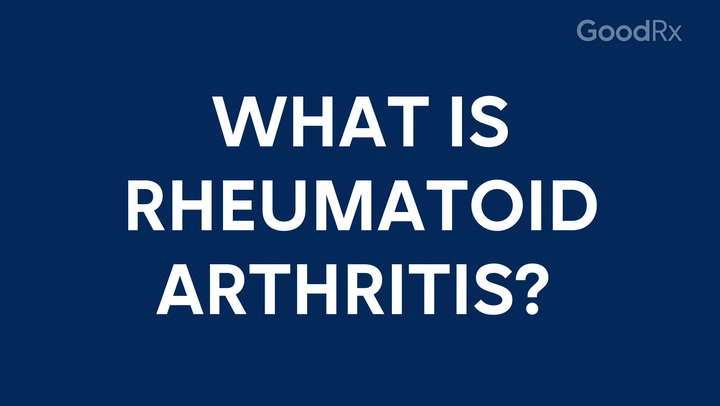
Collagen for Joints: Does It Help Relieve Pain?
Key takeaways:
Collagen is a protein found in many structures throughout your body, like your skin and joints.
More data is needed to know if collagen helps joint pain because studies so far have been small and of low quality.
Talk with your healthcare professional about treatments for joint pain. Depending on the cause, you have options that range from lifestyle strategies to physical therapy and medications.

Joints — the spaces between two bones — let people move around. When they hurt, doing just about anything can feel impossible. It’s natural to want relief, but what might actually help?
The good news is there are many options. But the first step is figuring out why your joints hurt. Depending on the cause, treatment might include lifestyle strategies like diet and exercise, physical therapy, medications, and supplements.
In this article, we discuss the scientific evidence (or lack thereof) behind collagen supplements for joint pain (arthritis). Do they actually help? What does the data show?
What is collagen and what does it do for the body?
Collagen is the most common protein in your body. It’s a building block for tissues and organs. There are 28 different types of collagen, each with different functions. But most supplements contain the most common types: I, II, and III. This is where these collagen types can be found in your body:
Collagen type I: This type of collagen can be found in skin, bones, tendons, ligaments, and your cornea.
Collagen type II: This type of collagen makes up cartilage, which protects your joints.
Collagen type III: This type of collagen can be found inside your muscles and arteries.
A lot of the focus on joint pain and collagen focuses on cartilage support. Cartilage is a tissue that covers the ends of bones and acts as a shock absorber for the joints (like the bumper on a car). This is important because arthritis results in the loss of cartilage over time. With less cartilage, there’s less cushion and more joint pain.
Cartilage has a limited ability to repair itself when damaged. This means it doesn’t really grow back. So, it’s natural to wonder if eating more collagen or taking supplements could help. Scientists are working on developing ways to regrow cartilage, but they aren’t quite there yet.
Interested in trying collagen but don’t want to take supplements? Try adding high-collagen foods to your diet.
Struggling with arthritis-related joint pain? Here’s how you can get started with yoga for arthritis joint pain relief.
Looking for more treatment options for joint pain? Here’s our roundup of the best supplements and OTC treatments.
Does collagen actually help reduce joint pain?
Researchers aren’t sure yet. Small studies suggest that hydrolyzed collagen might improve joint pain in people who have osteoarthritis (arthritis due to the wear and tear of aging). A small study in 2009 also showed that collagen might improve joint pain and swelling in people with rheumatoid arthritis.
But experts don’t currently recommend collagen for routine treatment of joint pain because more data is needed to confirm its effectiveness.
It’s also important to note that many studies that show benefits of collagen supplements are funded by companies that make collagen supplements. This can lead to biased results that make it even harder to know if collagen supplements are effective.
Read more like this
Explore these related articles, suggested for readers like you.
If you’re interested in trying supplements for joint pain, there are a few others that might help. On the other hand, studies have confirmed that glucosamine and chondroitin don’t work. That’s why the American College of Rheumatology and Arthritis Foundation no longer recommend their use.
How much collagen should you take to improve joint health?
Since the benefits of collagen for joint health are unclear, the correct dose of collagen isn’t known. It’s also not clear how long you would need to take them before getting results.
If you’d like to try collagen supplements, start by reading the labels on bottles and stick to recommended doses.
What are the best collagen supplements for joints?
At this time, there’s no single best collagen supplement to recommend for joint health because experts aren’t 100% certain they help. And since data is limited for collagen supplements, taking them may actually be no better than eating natural collagen sources in foods like bone broth and fish.
Drawbacks of collagen supplements
Collagen supplements can lead to side effects and other unwanted drawbacks. Research suggests they may contribute to gastrointestinal side effects, including:
Gas
Bloating
Stomach discomfort
Nausea
As with any medication or supplement, it’s important to discuss collagen supplements with your healthcare team before taking them. That’s because they might interact with some of your other medications.
It’s also important to remember that the FDA doesn’t regulate supplements (or the claims on the label). That means they may not do or contain what they’re supposed to. Here at GoodRx Health, we’ve also collected some tips to help you choose safer supplements.
Can you take too much collagen?
Taking up to 10 g per day of collagen supplements is likely safe for most adults who aren’t pregnant.
Frequently asked questions
It’s not clear. But some studies suggest it can take up to 6 months for people to start noticing improvement in joint pain while taking collagen supplements.
Some types of collagen have been shown to have anti-inflammatory properties. But it’s not clear how this translates to joint pain relief or whether all collagen supplements have anti-inflammatory effects.
Some experts recommend against taking glucosamine supplements for joint pain from arthritis. These same experts haven’t released recommendations about collagen. But other experts are urging for more research to show whether collagen supplements can help with arthritis-related joint pain relief.
The bottom line
Right now, more data is needed to know if collagen supplements actually help ease joint pain. If your joints are hurting, let your primary care provider know. They can help you figure out the cause. From there, you have many options to decrease your joint pain and get you moving better. Beyond collagen supplements, you may consider physical therapy, lifestyle changes, and medications.
Why trust our experts?


References
American College of Rheumatology. (n.d.). Osteoarthritis guideline.
Bello, A. E., et al. (2006). Collagen hydrolysate for the treatment of osteoarthritis and other joint disorders:a review of the literature. Current Medical Research and Opinion.
Bianchi, F. M., et al. (2022). Evaluation of the efficacy of a hydrolyzed collagen supplement for improving skin moisturization, smoothness, and wrinkles. Journal of Clinical and Aesthetic Dermatology.
Brandao-Rangel, M. A. R., et al. (2022). Hydrolyzed collagen induces an anti-Inflammatory response that induces proliferation of skin fibroblast and keratinocytes. Nutrients.
Kolasinksi, S. L., et al. (2020). 2019 American College of Rheumatology/Arthritis Foundation guideline for the management of osteoarthritis of the hand, hip, and knee. Arthritis and Rheumatology.
Martínez-Puig, D., et al. (2023). Collagen supplementation for joint health: The link between composition and scientific knowledge. Nutrients.
MedlinePlus. (2024). Collagen peptides.
Roseti, L., et al. (2019). Articular cartilage regeneration in osteoarthritis. Cells.
Wei, W., et al. (2009). A multicenter, double-blind, randomized, controlled phase III clinical trial of chicken type II collagen in rheumatoid arthritis. Arthritis Research and Therapy.
Wu, M., et al. (2023). Biochemistry, collagen synthesis. StatPearls.





























